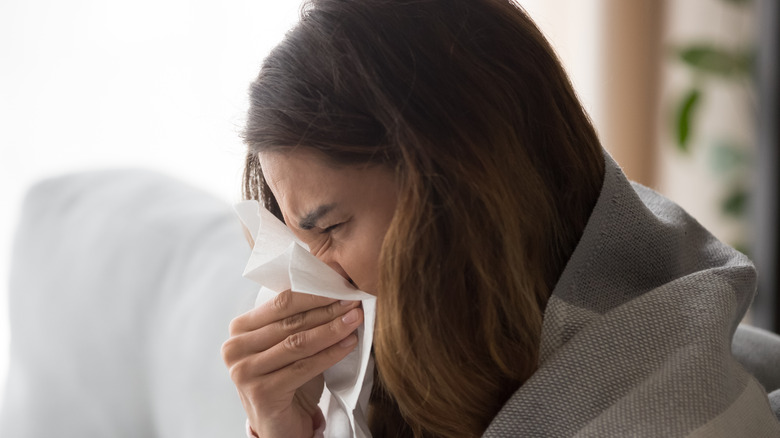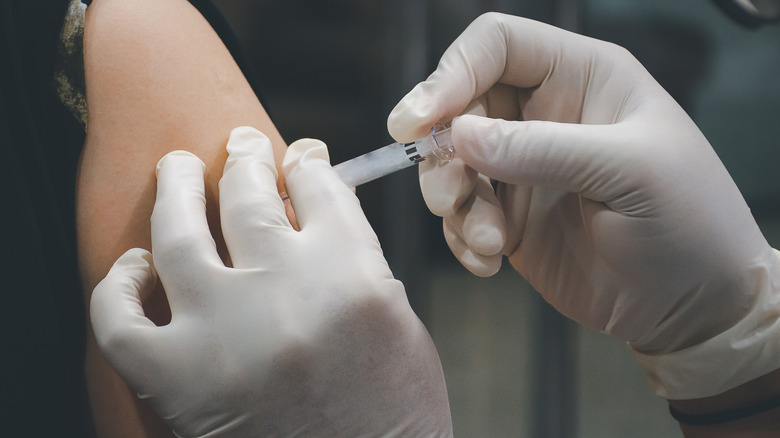What You Can Do To Decrease Your Risk Of Pneumonia
Pneumonia is an infection in the lungs caused by bacteria, viruses, or fungi. It inflames the airways of the lungs, causing the air sacs in one or both of your lungs to swell and become full of fluid or pus (via Cleveland Clinic). This can cause a range of flu-like symptoms, some of which can last for weeks. These symptoms include fever, cough, chest pain, and shortness of breath.
While anyone can contract pneumonia, some people are more at risk than others. Those who have an increased risk of getting pneumonia include young children, older adults, people with compromised immune systems, smokers, pregnant people, and people with underlying medical conditions that affect the heart and lungs.
Pneumonia can lead to a number of serious complications that make it very difficult to breathe. It can also cause a buildup of excess fluid in the lungs called pleural effusion, which can be treated by draining the fluid with a chest tube, catheter, or by surgery. While these complications can arise for anyone with pneumonia, people in high-risk groups are more likely to experience them than others.
Getting vaccinated can prevent pneumonia
One way you can reduce your risk of contracting pneumonia is by getting vaccinated (via Healthline). There are two pneumococcal vaccines that can help prevent pneumonia: the pneumococcal conjugate vaccine and the pneumococcal polysaccharide vaccine.
The pneumococcal conjugate vaccine, or PCV13, can help protect against 13 types of bacteria that cause serious infections in children and adults. The pneumococcal polysaccharide vaccine, or PPSV23, protects against 23 different types of pneumonia bacteria in adults who are typically over age 65. These individuals have typically already received the PCV13 vaccine.
Since pneumonia is often caused by the flu, getting vaccinated for the flu each year can prevent you from contracting pneumonia as well (via WebMD). Speak to your doctor about any underlying health conditions you have before receiving the vaccine. Your doctor can also help you learn how to further protect yourself from pneumonia and keep an eye out for symptoms.

